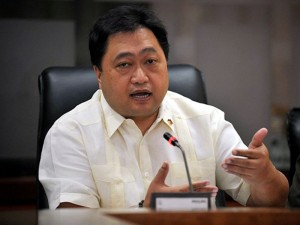Trying to put teeth to what has been a futile antismuggling drive, the Department of Finance issued two regulations subjecting importers to stringent accreditation and evaluation procedures before and after they transact with the Bureau of Customs.
Under the first regulation, importers are now required to first secure accreditation from the Bureau of Internal Revenue (BIR) before they can import goods through the BOC.
According to the DOF, the parent agency of both the BIR and the BOC, the accreditation requirement would help ensure only legitimate and tax-paying businesses would be able to import goods through the Customs’ ports.
“The BIR accreditation system is an essential step in our efforts for importer accountability and compliance,” Finance Secretary Cesar Purisima said.
“With the database of the BIR on registered taxpayers, we will be in a better position to determine whether an importer is doing legitimate business and whether they are paying the right taxes,” he added.
Under the second regulation, foreign goods that enter the country and dispatched by the BOC will be subjected to post-entry audit by the Fiscal Intelligence Unit (FIU) of the DOF.
The FIU will be responsible for determining whether the BOC applied the correct tariff rates and collected the appropriate amount of import taxes and duties.
This regulation has effectively dissolved the Post-Entry Audit Group of the BOC.
Purisima said that taking away the function of post-entry audit of imports from the BOC was a prudent move.
The twin measures are aimed at addressing the huge foregone government revenues resulting largely from corruption in the BOC and weak auditing by some Customs personnel.
“The post-entry audit work the FIU will perform is critical to our campaign to run after smugglers and will institutionally provide a good check-and-balance mechanism for Customs,” Purisima said.
The finance chief noted that last year, collections by the BOC out of its post-entry audit stood at only P700 million.
Based on rough estimates, however, the government loses about P200 billion in potential revenues a year due to smuggling.
“This [P700 million] is a miniscule amount compared to the foregone duties and taxes lost to smuggling every year. This year, we plan to substantially increase collections from our audits,” Purisima said.
The issuance of the two new regulations—Department Order Nos. 12-2014 and 13-2-14—is part of the ongoing reform program in the BOC, one of the most corrupt government agencies.
The regulations were issued following the appointment of a new set of commissioner and deputy commissioners in the BOC late last year.
Corruption-aided smuggling is believed to have dragged the collection performance of the BOC, which last year fell short of its P340-billion target.
Based on an earlier report by the DOF, the BOC collected P252.4 billion from January to October last year. This meant that the BOC had to collect at least P87.6 billion in November and December to meet the full-year target. But the DOF, which declined to give a monthly breakdown of the Customs collections, said cumulative collections by the BOC for November 2013 to January 2014 totaled only P81.325 billion.
